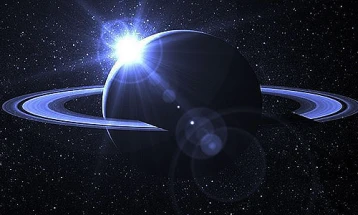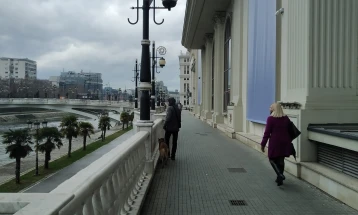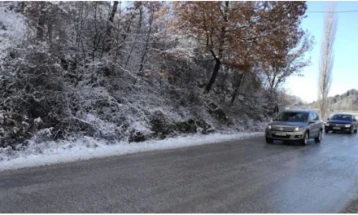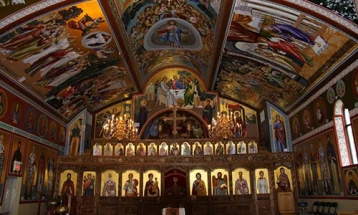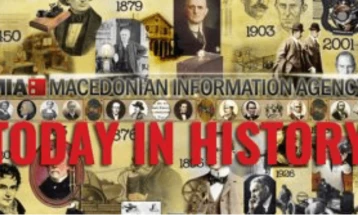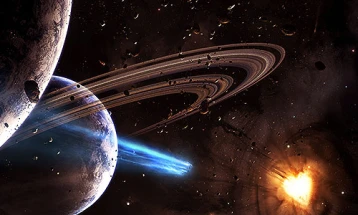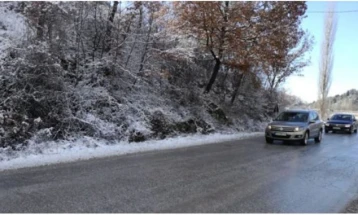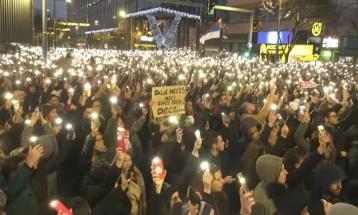Religious calendars
- 16 April 2023 (MIA)
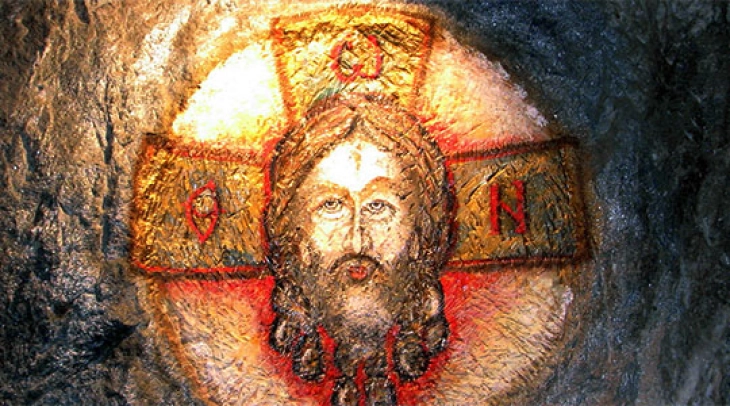
16 April 2023 (MIA)
Macedonian Orthodox Church Calendar
Easter Sunday
Easter is the culmination of events during Holy Week beginning with Palm Sunday. Palm Sunday reflects the return of Jesus to Jerusalem. Maundy Thursday commemorates the Last Supper of Christ and Good Friday honours the crucifixion of Jesus. Finally, Easter Sunday celebrates the resurrection after his death.
The red colour of the Orthodox Easter egg signifies the blood of Christ, its shell His three-day entombment, and its breaking His Resurrection by which the ‘egg of life’ brought forth a life, up to then unknown.
The red coloured eggs represent the sealed tomb in which the body of our Saviour was placed after His crucifixion. At first the egg is closed and without life, but after several weeks it is broken open and lets the life come out-the little chick. In the same way, the Lord lay in the closed tomb for three days, but then He broke the seal from inside. He who is the Life and Light could not be sealed, and when the time was fulfilled, He came out; in the same way the chick breaks the shell to come out at the proper time. So the eggs at Easter remind us how Christ Himself resurrected from the dead.
Originally only red dye was used to colour the eggs. Red signifies the sacred blood of Christ, which was shed for our salvation. At the time when Jesus rose from the tomb, Mary Magdalene was crying because she thought that someone had stolen the Body of the Lord. Then she saw Him and talked with Him. The Lord told her to go and tell the Apostles of the Resurrection. She ran through the city shouting, “Christ is risen!” On the way she passed someone carrying a basket with eggs, and she said to him, “Christ is risen!” The man answered, “He will rise when these eggs turn red!” Immediately the eggs turned red, and they were amazed.
When Friday dawned, Christ was sent bound from Caiaphas to Pontius Pilate, who was then Governor of Judea. Pilate interrogated Him in many ways, and once and again acknowledged that He was innocent, but to please the Jews, he later passed the sentence of death against Him. After scourging the Lord of all as though He were a runaway slave, he surrendered Him to be crucified.
Thus the Lord Jesus was handed over to the soldiers, was stripped of His garments, was clothed in a purple robe, was crowned with a wreath of thorns, had a reed placed in His hand as though it were a sceptre, was bowed before in mockery, was spat upon, and was buffeted in the face and on the head.
Then they again clothed Him in His own garments and bearing the cross, He came to Golgotha, a place of condemnation, and there, about the third hour, He was crucified between two thieves.
Although both blasphemed Him at the first, the thief at His right hand repented, and said: “Remember me, O Lord, when Thou comest in Thy Kingdom,” to which our Saviour answered, “Today shalt thou be with Me in Paradise.” As He hung upon the Cross, He was blasphemed by those who were passing by, was mocked by the high priests, and by the soldiers was given vinegar to drink mixed with gall. About the ninth hour, He cried out with a loud voice, saying, “It is finished.” And the Lamb of God “Which taketh away the sin of the world” expired on the day when the moon was full, and at the hour when, according to the Law, was slain the Passover lamb, which was established as a type of Him in the time of Moses.
Even lifeless creation mourned the death of the Master, and it trembled and was altered out of fear. Yet, even though the Maker of creation was already dead, they pierced Him in His immaculate side, and forthwith came there out Blood and Water. Finally, at about the setting of the sun, Joseph of Arimathea came with Nicodemus (both of them had been secret disciples of Jesus), and they took down the all-holy Body of the Teacher from the Cross and anointed it with aromatic spices, and wrapped it in a clean linen cloth. When they had buried Him in a new tomb, they rolled a great stone over its entrance.
Such are the dread and saving sufferings of our Lord Jesus Christ commemorated, and in remembrance of them, we have received the apostolic commandment that a fast be observed every Friday.
Catholic Calendar
Sunday of Divine Mercy
Each year, on the Second Sunday of Easter—the last day of the Easter Octave—the Catholic Church celebrates the Sunday of Divine Mercy.
On this day, Catholic believers contemplate the fullness of the Paschal Mystery—Christ’s Passion, death, and Resurrection. The basis of the whole Easter Mystery is the merciful love of God.
From the beginning of creation, throughout Scripture, and most perfectly in the life, Passion, death and Resurrection of his Son, Jesus, God has been revealed as love itself.
Islamic Calendar
Time of iftar and suhur
In Skopje, iftar (breaking of the fast) today begins at 19:18h and suhur (the pre-dawn meal) starts at 04:12h.
Iftar and suhur in Prilep and Kumanovo start a minute earlier, 2 minutes earlier in Veles, 3 minutes in Stip, 4 minutes in Kochani, 5 minutes in Strumica and Valandovo and 6 minutes earlier in Delchevo.
Iftar and suhur start a minute later in Resen and Bitola, 2 minutes later in Tetovo, Gostivar and Kichevo, and 5 minutes later in Ohrid, Debar and Struga.
